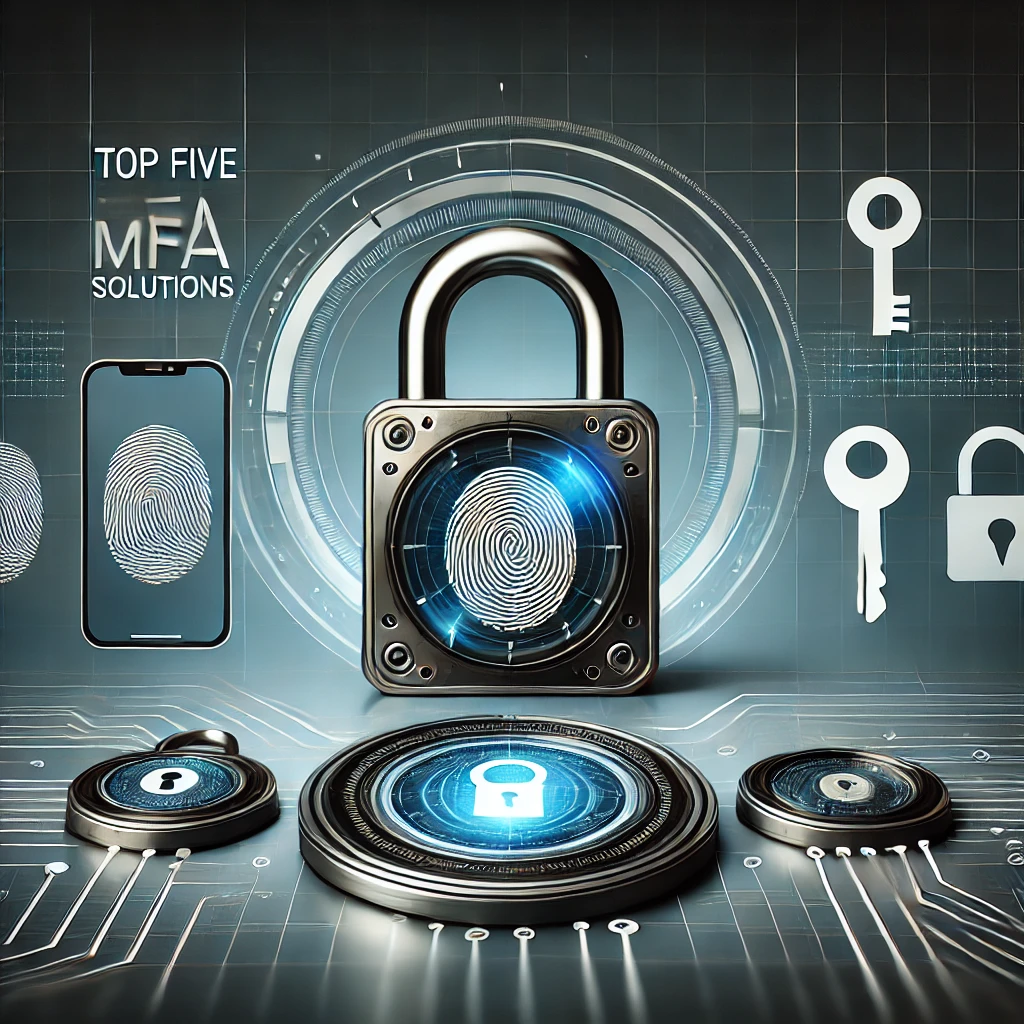The Top 5 MFA Solutions to Know in 2024
Cyber threats keep getting smarter — which means passwords alone aren’t enough anymore. That’s where Multi-Factor Authentication (MFA) comes in. By requiring more than just a single login credential, MFA makes it much harder for attackers to break in.
With plenty of MFA tools out there, it can be tough to choose the right one. To make it easier, here’s a look at five of the most trusted MFA solutions in 2024, their standout features, and why they’re worth considering.
1. Microsoft Authenticator
If your business runs on Microsoft services, this one’s a no-brainer. Microsoft Authenticator integrates seamlessly with Azure Active Directory but also plays nicely with third-party apps.
Highlights:
Biometric logins with face or fingerprint recognition.
One-tap push notifications for quick approvals.
Passwordless sign-in to cut down on phishing.
Works across iOS, Android, and web apps.
Why choose it:
It’s simple, secure, and built to support both Microsoft and non-Microsoft environments. A natural fit for companies in the Microsoft ecosystem.
2. Duo Security (by Cisco)
Duo has become a favorite in enterprise environments thanks to its balance of usability and strong protections.
Highlights:
Device health checks to block risky or outdated devices.
Adaptive authentication that adjusts security based on user behavior or location.
In-depth reporting and compliance tools.
Multiple login options: push, biometrics, SMS, phone calls.
Why choose it:
It’s scalable, easy to roll out, and strengthens overall security posture with continuous monitoring.
3. Okta
Okta is best known for identity and access management, but its MFA features are equally powerful.
Highlights:
Context-aware access that considers device, location, and behavior.
Passwordless authentication options.
Integrates with thousands of business apps.
Real-time risk-based authentication.
Why choose it:
Okta is flexible, highly secure, and customizable. It’s a strong option for organizations managing many different apps and systems.
4. Authy (by Twilio)
Authy stands out for its simplicity and ability to work across multiple devices.
Highlights:
Supports authentication on smartphones, tablets, and desktops.
Encrypted backups and sync so tokens aren’t lost.
Generates secure one-time passwords (OTPs).
Extra options for SMS or voice authentication.
Why choose it:
It’s user-friendly, reliable, and makes recovery easy. A good fit for users who want flexibility without sacrificing security.
5. Google Authenticator
Trusted by millions, Google Authenticator is lightweight, free, and widely adopted by both individuals and small businesses.
Highlights:
Time-based one-time passwords (TOTPs).
Works offline with no internet needed.
Quick QR code setup.
Available on iOS and Android.
Why choose it:
It’s simple, cost-free, and effective — perfect for individuals or smaller organizations that want an easy security upgrade.
Conclusion
Choosing the right MFA solution depends on your setup, budget, and security needs. Microsoft Authenticator, Duo, Okta, Authy, and Google Authenticator all bring unique strengths to the table, from enterprise-ready compliance tools to lightweight personal protection.
What’s clear is that MFA is no longer optional. Adding this extra layer of defense drastically lowers the risk of unauthorized access and keeps sensitive data safe in a world of evolving threats.
